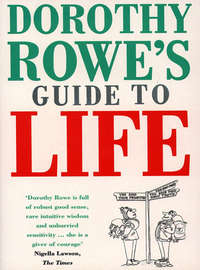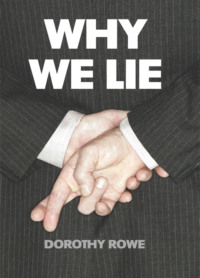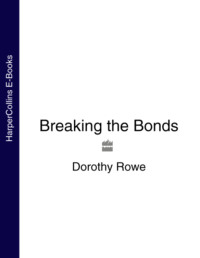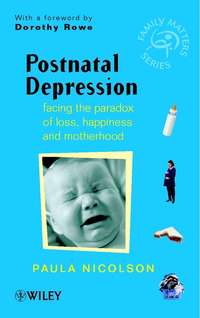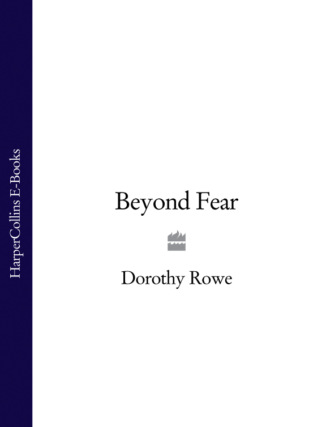
Полная версия
Beyond Fear
She was crying. I gave her a tissue and said, ‘That’s the saddest story I’ve ever heard. That poor little girl.’
Margaret did not believe me. For her the shame was never ending.
But the pain for Margaret was not simply the shame she continued to feel for a misdemeanour the like of which many children at that age commit. If it is not sexual exploration it is stealing, or joy-riding, or, more dangerously, glue-sniffing. It would be a rare adult who could put their hand on their heart and swear that between the age of six and sixteen they had never broken the law or transgressed the moral code. For Margaret there was a greater problem.
One day she took me to task for never using her name when I was talking to her. I had to admit this. My style was never to use the name of the person I was talking to except when I wanted to attract their attention. I apologized to Margaret, and asked her why it was important that I use her name.
She said that it showed that I had not forgotten it and thus had not forgotten her. She told me how she felt that when she vanished from a person’s sight she vanished from that person’s memory. Whenever she returned to work she was surprised to find that the people there remembered her.
I said, ‘I always remember who you are when you arrive,’ and she responded, ‘That’s because you’ve written it in your diary.’
It was not just that she believed she was so insignificant that people did not remember her. Behind her anxiety was the fear that if everyone forgot her then her existence would cease. Most of the time she knew that believing that she existed only because other people thought of her and that she could vanish at any time was nonsense, but being left alone and forgotten was a fate she dreaded. Shame may have made her want to hide away, but shame also gave her the feeling that other people were observing her, and their gaze meant that she continued to exist. Shame strengthened her sense of existence and so she dared not relinquish it.8
In 1985 I wrote this story in the present tense. Now it must be told in the past tense, because for many years Margaret has led a happy life. She now has her own home and a loving partner, and she travels extensively worldwide. I have told the story of how she took charge of her life and changed in my book Breaking the Bonds.9
Many of us define ourselves in terms of our sense of guilt. A feeling of impending punishment can hang over us, like a Damoclean sword, ready to smite us for deeds done or which we have failed to do. While shame relates to our identity, the person that we are, and guilt to what we do, we can come to believe that everything we do is wrong and that we can never do anything properly, so that a sense of guilt, a pervasive sense of fear, can absorb our being to the extent that it becomes one of the structures by which we define ourselves. If we did not feel guilty we would not know what to do. As Constance once said to me, ‘I was born guilty’.
Some children acquire this sense of guilt when they come to feel that it was their fault that their mother died or their parents split up, even though these events occurred when the children were far too young to understand them. Most of us acquired our sense of guilt when, as small children, we found ourselves locked in combat with a parent over where and when we should defecate, or whether and what we would eat, or because our parent was punishing us and we did not understand why. We defended ourselves with anger and protest against a parent whom we saw as interfering and unjust. However, we could not win the battle and bring it to an end. We went on battling, and, as we did, we recognized that the situation was becoming increasingly dangerous. We felt very keenly that our parent was wicked to do this, but if that were so it meant that the person on whom we depended was wicked. This was terrible. We had to find some way of making ourselves safe.
Our solution was to accept our parent’s definition of the situation. Power is always about who does the defining and who accepts the definitions. So we acquiesced. We decided that we were wrong to see the situation as ‘I am being unfairly punished by my wicked parent’. The correct way to define the situation was ‘I am bad and am being justly punished by my good parent’, which was how our parent saw it.
This acceptance of our parent’s definition may have extricated us from that dangerous situation, but the price we paid was a lifelong sense of guilt. The sins of commission and omission became an integral part of our relationships with others and, knowing our badness, we have to strive to be good. Or else what will happen to us if we are not good? We shall be punished and abandoned.
This, as small children, is what we feared most of all, that our parents would abandon us and leave us alone, weak and defenceless in an alien world. We had learned what this was like when we were abandoned in our cot through a long, dark night and no one came to comfort us, or our mother left us with strangers and did not return for a long time. We heard the threat of abandonment when our parents told us of bad children being sent to children’s homes or of parents being driven to leave or even to die by their children’s wickedness. The most loving of parents can say in a moment of exasperation, ‘I can’t stand you a moment longer,’ or ‘You’ll be the death of me.’
Threats of abandonment do not diminish as a child gets older. A friend told me how, when he was nine and causing his mother some bother, she had packed a bag with his clothes and ordered him out of the house. He spent the day sitting at the front gate, hoping to be let back in again and promising to be very good. He is a man of unsurpassed goodness.
The fear of abandonment can underlie the whole of our experience of our existence, and because it is always there, allowing no contrast with periods without it, we do not conceptualize it clearly and consciously. Thus we do not ask why we have this fear now and whence it came.
Lorna had a nasty, life-threatening disease, cystic fibrosis, but she showed that by bravely and sensibly following a strict health regime this disease need not cut short one’s life nor prevent one from leading an ordinary existence. She had had to give up her work as a nurse but she had a loving, supportive husband, a wonderful daughter, a pleasant home, and a strong Christian faith which assured her that there was no reason to fear death. She could not understand why she should wake during the night consumed with panic, nor why a black depression should immobilize her in a way that her illness never did.
Nor could she understand why her GP wanted her to talk to me. But she dutifully came along, and discovered that talking to me gave her something important that was missing from her life. At home she was addressed as wife, mother, daughter, daughter in-law. Nobody talked to her. Now she had found someone who talked to her as her.
We talked about many things - the worry of her illness, the peculiarities of the medical profession, the responsibilities she carried for her family because she had always been the ‘sensible, well-organized, reliable one’. We talked a great deal about her need to do everything perfectly. Visitors had to be entertained with hot meals and home-made cakes. The garden must be trim and neat, the house immaculate. ‘I wouldn’t dream of going out and leaving the washing up not done or a bed unmade,’ she said.
I argued that she should let visitors fend for themselves and that housework should be kept to a minimum so that she had time and energy to do things which she found interesting and pleasant. At first she was doubtful, but one morning she told me, with triumph and laughter, ‘I went to church on Sunday without making the bed first but I closed the curtains so the neighbours couldn’t see.’
Why did she set herself such high standards and always strive to meet them? True, she had a mother who always expected her daughter to be perfect and a credit to her, but why had she accepted the enormous demands that her mother made on her?
One day, when she was telling me how fiercely she resisted going into hospital whenever her illness produced some complication, and how miserable she felt when she was there, she mentioned going into hospital when she was a child. I asked her about this and she described how she had been sent to a hospital when she was about seven. It was housed in a castle and run with military efficiency. Parents were not allowed to visit and children had to do what they were told. They had to be neat and tidy, obedient and reliable, and there were punishments if they were not. When her parents left her there she dared not cry because her mother disapproved of tears. She thought that she might never see her parents again, but when, at last, after many months, she did go home, she worried that she might be sent away again, to be abandoned and alone. So she tried very hard to be good.
Until we talked about these events in her childhood and uncovered the meaning they had for her, Lorna had not seen the connection between these childhood experiences and her drive for perfection, her fear of hospitals and the terrible panics which came whenever she felt that she was completely and absolutely alone. Buried farther was her anger towards her parents, who had abandoned her in the hospital, and towards her family, who expected her to give up being herself and to be what they wanted her to be. She had not acknowledged this anger, lest it burst forth and her family, who would not tolerate anger, reject her.
In the womb we were securely held. Being born brings us the first experience of being abandoned. We are no longer confined within secure limits, and instead a limitless world stretches around us. This uncertainty is frightening but necessary. All through our lives we cannot change anything about ourselves unless we go through a period of uncertainty. If we are wise we teach ourselves to tolerate the uncertainty of change, but, even as we do this, we retain the longing for the comfort and security of being securely held.
The ways in which this need can be met range from being physically held to knowing ourselves to be an accepted and loved member of our group. Important though this need is to all of us, there is no word for it in English. The closest word is ‘dependence’, from the Latin ‘to hang from’, but in our society to be dependent is not an admirable quality. Only weak, despicable people are dependent; strong, admirable people are independent. So we have to keep hidden our longing to be held secure in loving arms.
Not so in Japan. The Japanese language contains an important word, amae, which has the root ‘sweet’.10 Sweet it is to rest secure in loving arms. Sweet it is to amaeru, to presume upon the secure and indulgent love given by another person. It is that sense of snuggling up, of coming home, not to shouts and yells and coldness and criticism, but to welcome, allowed to be yourself and knowing that the people around you accept you as you are. The toddler who climbs on to an adult’s lap, confident of a cuddle, the teenager who throws his dirty football shorts on the bathroom floor, confident that they will reappear in his drawer, clean and pressed, the wife who snuggles up to her husband in bed and confidently places her cold feet on his - all amaeru. We all long to amaeru, but so often we cannot do this. Sometimes we have no one to hold us, and sometimes the people who hold us do so too tightly and threaten to smother us.
Adults who care for babies need to find a balance between keeping the baby securely held and allowing the baby the freedom to stretch, kick and act upon the environment by exploring it. In western Europe until the eighteenth or nineteenth centuries and to this day in eastern Europe, babies were wrapped tightly from birth in swaddling sheets to form a rigid bundle and left tightly held, but not in human arms, for the first six to eight months of their life. The theory behind swaddling was, according to the historian Lloyd de Mause, ‘If it [the baby] were left free it would scratch its eyes out, tear its ears off, break its legs, distort its bones, be terrified at the sight of its own limbs, and even crawl on all fours like an animal.’11
Nowadays good mothering practice includes both tucking the baby securely in a cot or carrying him in a sling held firmly against the adult’s body and freeing the baby from all physical restraints in a warm, safe environment. These two kinds of condition are necessary for the baby, not just to encourage physical growth and health but to help him develop as a person who can tolerate the closeness of being in a secure group and the uncertainty of being an individual acting upon the world.
Unfortunately, some parents believe that they must teach the baby that they and not the baby are in charge, and so they do not respond to cries of hunger or distress. Some parents are too tired, or too busy, or too depressed to play with or talk to the baby. To learn, to develop our intelligence, we need to be able to act upon the world. Doing this, we develop the idea that ‘I am the kind of person who can act successfully upon the world’.
The idea ‘I am the kind of person who can act successfully upon the world’ is one of the possibilities that can be contained in an individual’s sense of being a person. If I asked you, ‘Who are you?’, you could list your gender, your age, nationality, religion, race, occupation and family connections. If I asked you, ‘What kind of a person are you?’, you could list your virtues and vices, strengths and weaknesses, alliances and enmities, your interests, wishes, needs, passions and beliefs, and all the things you know about yourself but find hard to put into mere words, but everything that you could tell me about yourself is made up of ideas. The sum total of these ideas is you, what you call I, me, myself. There is no little you sitting inside you, adding to and maintaining this sum total of ideas. You are your sum total of ideas, or what I call your meaning structure, because this sum total of ideas has a structure where every part is connected to every other part.
Your meaning structure is not a static structure but a feedback process in constant movement. Nowadays we are all familiar with feedback processes in objects like refrigerators and heating systems. Many refrigerators freeze and defrost themselves, and many heating systems change themselves with changes in outside temperature. There is no little engineer sitting in your refrigerator or heating system pressing the right buttons as needed. The process processes itself. It is the same with you. Denis Noble, Emeritus Professor of Cardiovascular Physiology at Oxford University, calls the self ‘an integrative process’.12 If you happen to speak Japanese or Korean you will have no difficulty in understanding this because, as Denis Noble said, ‘What these languages do is to emphasise the “doing-ness” of things, the processes that occur, that is, the verb rather than the subject who is the possessor of the being-ness or doing-ness.’ If Descartes had been Japanese or Korean he would not have said ‘cogito ergo sum’, ‘I think, therefore I am’, but ‘thinking, therefore being’.13
Thinking of yourself as an active process can be somewhat disturbing, but think about it a bit more. Isn’t that how you experience yourself, with thoughts that come and go, memories bobbing to the surface, along with ideas, images, wishes and needs? The feedback in your process operates all the time as you see the results of what you have done, and you modify what you do next time. The process which is you reflects upon itself and so it can change. If you had been born with a bit of your brain marked ME, a bit that just sits there unchanging, you would have been stuck with you for the rest of your life.
Feedback processes like those in our refrigerator and heating system and in us, our meaning structure which gives us a sense of being a person, do not operate in a vacuum. These three kinds of processes operate in relation to their environment. Deprive us of our environment, and our sense of being a person begins to disintegrate. Sensory-deprivation experiments, where an individual is deprived of sight, sound, movement, smell and touch, have shown that, under these conditions, people begin to lose the ability to distinguish what is around them from what is inside them, their thoughts and feelings. These become increasingly bizarre. There is no lack of evidence of what happens to babies and children who are deprived of loving care, while all gaolers know that the quickest way to break the toughest man is to put him in solitary confinement for an indefinite period.
Our meaning structure starts to take shape while we are still in the womb, where babies hear sounds and experience pleasure and pain. A newborn baby looks around at the world with intense interest, and so his meaning structure grows and changes. Our meaning structure grows out of the functioning of our brain, and so, like all living things, its first purpose is to stay alive.
‘Staying alive’ for a meaning structure means staying as one coherent whole. The aim of all the functions of the meaning structure is to keep the structure whole and not let it fall apart. If the meaning structure starts to fall apart the sense of being a person will start to dissipate. We experience this whenever we discover that we are mistaken in our judgement. Mislaying our house keys makes us anxious; discovering that the world is not what we thought it was can threaten to annihilate us as a person. Whenever we discover that we have made a serious error of judgement - say, that the person we loved has abandoned or betrayed us, or that being a good person does not protect us from disaster - we feel ourselves to be shattering, crumbling, even disappearing, and with this comes the greatest terror, the fear that we shall be annihilated as a person.
Our sense of being a person is our meaning structure, and this meaning structure grows out of the functioning of the brain. While we are far from understanding just how brain and mind are linked, our increasing knowledge of how the brain functions shows that there can be no scientific doubt that the brain and mind are one.
Конец ознакомительного фрагмента.
Текст предоставлен ООО «ЛитРес».
Прочитайте эту книгу целиком, купив полную легальную версию на ЛитРес.
Безопасно оплатить книгу можно банковской картой Visa, MasterCard, Maestro, со счета мобильного телефона, с платежного терминала, в салоне МТС или Связной, через PayPal, WebMoney, Яндекс.Деньги, QIWI Кошелек, бонусными картами или другим удобным Вам способом.


